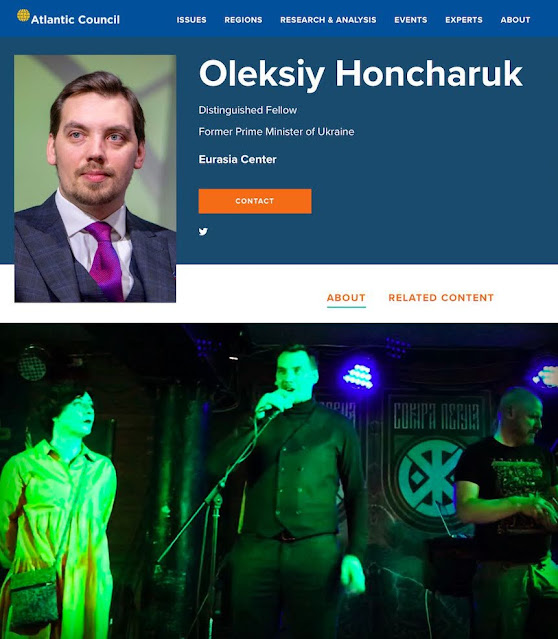In the spring of 1989, an arresting work of intellectual history was completed in Germany. Its author, Lutz Niethammer, had hitherto distinguished himself as an oral historian specializing in the reconstruction of popular life from below. The field of Posthistoire is virtually antithetical. Its subject is the emergence of a web of speculations on the end of history, at the highest reaches of the European intelligentsia, in the middle years of this century. Drawing on a variety of philosophical and sociological sources, these could stem from a range of distinct intuitions. Niethammer distinguishes three main variants: the idea of a spiritual closure of the repertory of heroic possibilities, derivable from Nietzsche; the vision of a petrification of society into a single vast machine, associated with Weber; and intimations of civilizational entropy, following from Henry Adams. But the focus of his study lies downstream from ultimate origins, in the confluence of such themes into a striking intellectual configuration that he situates, with some precision, in the Franco-German area between the time of the Popular Front and the Marshall Plan.
It was then that an uncanny skein of thinkers started to suggest that history was nearing its terminus. In a brilliant feat of intellectual detection, Niethammer brings to light the hidden links or affinities — Cultural or political — within a group of otherwise very contrasted theorists of the period: Henri de Man, Arnold Gehlen, Bertrand dc Jouvenel, Carl Schmitt, Alexandre Kojève, Ernst Jiinger, Henri Lefebvre, even in their way Walter Benjamin and Theodor Adorno. Posthistoire, a French term that exists only in German, adopted in the fifties by Gehlen from a reading of de Man, signifies for Niethammer less a theoretical system than a structure of feeling, the precipitate of a certain common historical experience. These were thinkers, Niethammer argues, who shared early hopes of a radical overthrow of the established social order in Europe, as activists or sympathizers with the major 'parties of movement’ of the inter-war period — socialist, fascist, communist; and then disappointments which crystallized into a deep scepticism about the possibility of further historical change as such. The result was something like like a collective vision — glimpsed from many different angles — of a stalled exhausted world, dominated by recursive mechanisms of bureaucracy and ubiquitous circuits of commodities, relieved only by the extravagances of a phantasmagorical imaginary without limit, because without power. In post-historical society, 'the rulers have ceased to rule, but the slaves remain slaves.' For-Niethammer, this diagnosis of the time is not without persuasive force: it corresponds to many particular experiences of daily life and local observations of social science. But they who speak of the end of history do not escape it. The pathos of Posthistoire is the intelligible product of a political conjuncture interpreted in the categories of a philosophical tradition.
For this is a vision, Niethammer argues, that should be understood as an inversion of the optimistic theories of history of the eighteenth and mid nineteenth centuries, that had once looked forward to universal peace or freedom or fraternity as the end-goal of human progress, in secularized versions of the teleology of sacred history. That serene Enlightenment confidence — shared by Holbach and Kant, Comte and Marx — in the objective course of social development had fallen into discredit by the close of the last century. What succeeded it were tense voluntarist bids to achieve millennial ends by force of subjective will, in the doctrines of Nietzsche, Sorel or Lenin. These acquired a mass following during and in the wake of the First World War, and form the immediate background to the revolutionary ambitions of those who were to become the theorists of Posthistoire. Their original expectations cashiered, these did not abandon the metaphysic of a historical transfiguration, but rather reversed its sign. The optimism of evolutionary progress or collective will gave way to an elitist cultural pessimism, that saw only petrifaction and massification in the stabilized Western democracies after the Second World War. Time still arrived at its term: but no longer with the meaning of an end — simply the facticity of an ending, disabling any ulterior aspiration or purpose. ln metaphorically projecting their own political experience as a world~history gone blank these thinkers characteristically paid little heed to the material development which actually threatened to bring history to an end, the dangers of nuclear war; still less to the fate of the famished majority of humanity outside the zone of industrial privilege. Posthistoire, a discourse of the end of meaning rather than the end of the world, was consistently blind to such questions: 'die Sinnfrage verdunkelt die Existenzefrage'.
Evidently critical, Niethammer’s treatment of the cluster of writers at the centre of his account is never dismissive. Written from the Left, about a set of figures many of whom were or ended up on the Right, its method - inspired by Benjamin's mosaics—is delicate and diagonal. The reveries of post-history does not seek to diminish them, as significant reflections of their time. Niethammer’s conclusions lie elsewhere. These were generally intellectuals who after their Political disappointments adopted the stance of an elite equally distant from the masses and from the appearances of the post-war order, conceiving themselves as isolated seers. From this posture they sought an overarching viewpoint, capable of distilling the substance of universal experience into a single narrative. Against this twofold pretension, Niethammer affirms the creed of a democratic history from below. Socially, intellectuals form in fact one part of the mass from which they like to distinguish themselves, a collectivity that dissolves on reflection into so many individual subjects. Epistemologically, truth lies first of all in the direct life-experiences of these subjects. It is their clarification that is the first duty of the historian, who is best advised to eschew all larger structural interpretations save as limiting surmises. Critical knowledge is to be found, not in the vain filibuster of macro-narratives, but in the modest commonplace hooks of the multitude - whose measure of freedom and responsibility is the only safeguard against the dangers which the diviners of post-history saw, as well as those they missed. The concluding judgement of Niethammer’s study could be taken as an obituary, laying to rest an esoteric doctrine whose creative time has passed.
Two months later, in July 1989, Francis Fukuyama published his essay "The End of History?" in Washington. There has rarely been a more striking rebondissement in the fortunes of an idea. Within a year, an arcane philosophical wisdom had become an exoteric image of the age, as Fukuyama’s arguments sped round the media of the globe. Unaware of Niethammer’s work (completed in May, published in November), this American reprise was directly linked to the Franco-German nexus studied in Posthistoire through the figure of Alexandre Kojévc — the declared theoretical source of Fukuyama's construction. construction. But the connection represents a paradox for Niethammer’s verdict. For the new version of the end of history did not come from any vantage-point, real or imaginary, in equidistant isolation from the populace and power, but from the bureaux of the State Department itself, and its organizing theme was not one of forbidding pessimism, but of confident Optimism. The change of register was also a shift in plane. In the Franco-German philosophers of history there was always more philosophy than history, politics glimmering only as elusive metaphor in the background of the diagnosis. In Fukuyama’s intervention the relations were reversed, history and politics in an emphatic sense occupying the foreground, with philosophical references forming a tracery behind them. The central thesis of his original essay was, of course, that humanity has reached the end-point of its ideological evolution with the triumph of Western liberal democracy over all competitors at the end of the twentieth century. Fascism, once a powerful rival, had been durably destroyed in the Second World War. Communism, the great post-war adversary, was in visible collapse, surrendering as a system to the capitalism it had once sought to overthrow. These two global alternatives discredited, there remained only local residues of the historical past: nationalisms without distinctive social content or universal claim, fundamentalisms confined to particular religious communities, in the backward zones of the Third World. The victory of liberal capitalism had been won not only in Europe, with the defeat of Nazism and the disintegration of Stalinism, but in the equally momentous battleground of Asia too, with the post-war transformation of Japan, the current liberalization of South Korea and Taiwan, the developing commercialization of China. In the industrialized world, competition between national states would continue. But purged of ideological or military toxins, it would concern mainly economic issues, within a collaborative framework of which the common market perhaps already furnished a model. In this view ethnic tensions or sectarian passions, terror or insurgency, might still proliferate in the South. But they do not compromise the deep configuration of the time. For the end of history is not the cessation of all change or conflict, but the exhaustion of any viable alternatives to the civilization of the OECD.
...Two kinds of objection were consistently raised against Fukuyama. The first was that his construction rests on a basic misrepresentation of Hegel. The second was that it involves a complete misconception of the age — ingenuously apologetic for some, dangerously insouciant for others. Each of these criticisms, made before the publication of Fukuyama’s book The End of History and the Last Man in 1992 amplified his case, bears examination. Before looking at them, however, one thing should already be plain. Niethammer’s profile of the philosophical figure of post-history, penetrating though it is, does not capture all its variations, which have proved richer than he suggests. The concluding cadences of Fukuyama’s essay, echoing late reflections in Kojève, belong to the portrait of Posthistoire. But here they appear as if an ironic after-thought, in an account whose central theme is a robust affirmation of the democratic prosperity Jünger or Gehlen scorned, and whose function is precisely to mediate between the official worlds of government and popular currents of opinion with a compelling public vision of the time. Such a role suggests a limit not just of Niethammer‘s description of the discourse of post-history, but of his recommended antidote to it. For his critique of the Franco-German tradition in effect concludes, not with an alternative to its diagnosis of the age, contesting its substantive theses, but with a call to eschew such ventures altogether — rejecting any macro-historical narrative as intellectually and politically overweening. Currently, the effect of such a withdrawal would be to leave the American variant in possession of the field. If this is to be questioned; it can only be on its own — legitimate, even inescapable terrain. The values of daily experience and local investigation are real; but they are no refuge from the course of the world. In general modern historians have nearly always reacted, understandably, against philosophies of history. But these have not gone away, and are unlikely to, as long as the demand for social meaning over time persists. The idea of a closure of history has a more complicated pedigree than is often assumed — one which merits consideration in its own right, or the light it sheds on the political issues posed by contemporary versions.
Perry Anderson "The Ends of History"
His language is languid, aristocratic; the flow is narcotic; he argues for the history of religion written by theologians. And did no one notice that Fukuyama's essay was published in a American journal called The National Interest? I guess that's for another generation of historians.
Evidently critical, Niethammer’s treatment of the cluster of writers at the centre of his account is never dismissive. Written from the Left, about a set of figures many of whom were or ended up on the Right, its method — inspired by Benjamin's mosaics — is delicate and diagonal.
Hardly the method of a writer of the multitude, but I'm not going to quibble. Everything above is romance; if Fukuyama returned to 19th century optimism that's just another fact of intellectual history and of history.
The values of daily experience and local investigation are real; but they are no refuge from the course of the world. In general modern historians have nearly always reacted, understandably, against philosophies of history. But these have not gone away, and are unlikely to, as long as the demand for social meaning over time persists.
The inevitability of an enchanted world.
I'm happy to admit that Hegel's theories are of more cultural importance than 19th century debates within the Church, but to a non-believer his fictions are arguably no more or less important than Goethe's. And isn't it the point to be at most a sympathetic non-believer?
The best writing like the best thought allows for romance and its opposite, the intimate and distant, giving credit to the capacities and the inevitabilities of the animal and human. High church decadence annoys me not because it's decadent but because it's dishonest: a lecture by a priest, not his wit at the orgy.
A coda I guess





